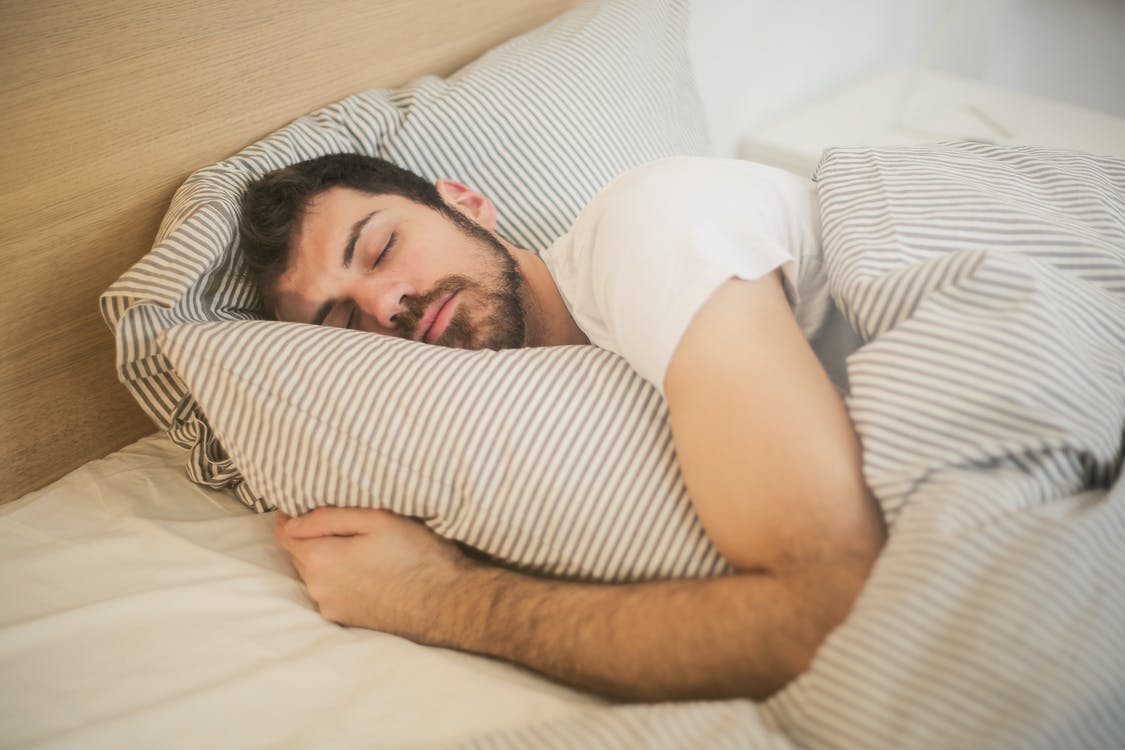Regular sleep is one of the crucial habits one must adopt to live a healthy life. Unfortunately, we have all been there – too tired, too anxious, or too mad to fall asleep, tossing and turning all night long, and still having to get up in the morning. Many factors, often outside of our control affect our sleep, which is completely normal. Even during those harder, more stressful days you can still manage to get a good night’s rest.
Leave your work at work
Work has become so important that for many work represents a constant source of worry and stress. While existential worries are understandable, the danger that work-related stress will ultimately take a toll on the body is real. Many symptoms are connected to work stress: high blood pressure, loss of appetite, short attention span, headache, indigestion, depression, anxiety, insomnia, etc.
The best way to deal with it is to leave it. When you are leaving the building, take a deep breath and leave it there. It will be there on your next shift, but with a good rest, you’ll deal with it easily.
Limit daytime naps
When you get used to poor sleep, and the business of the day stops, your body will be certain to ask for rest. Unfortunately, these short naps will easily turn longer and affect your sleeping schedule. The issue with regular daytime naps is that, apart from your sleeping schedule naps will also affect your overall performance. As a matter of fact, there is a connection between frequent napping and sleepiness all day, with lighter sleep during nighttime.
The best time for exercise is not just before sleep as higher levels of epinephrine and adrenaline might leave you wide awake. This is not the case for everyone, but the information can, either way, prove beneficial in case it affects you. Give yourself a few hours to ease into the world of dreams after sweating in the gym.
Rule out sleeping disorder
The above-mentioned insomnia is only one of the unfortunately large groups of sleeping disorders. The most common sleeping disorder is sleep apnea. The symptoms of sleep apnea are snoring, dry mouth or sore throat, being overweight or obese, smoking, teeth grinding, or other teeth, and jaw-related issues.
Apart from a doctor’s appointment to resolve any underlying issue, you will greatly benefit from a night mouth guard. Mouth guards are devices that stop grinding, clenching, and other actions in the mouth region that cause oral and sleeping issues. Other common health conditions include circadian rhythm and sleep movement disorders.
Take a relaxing bath
A warm shower or bath can help majorly in reducing stress by lowering blood pressure and relaxing muscles. The sound of the running water is also therapeutical for many and is directly associated with rest in a peaceful environment. The bathing ritual can include reduced lighting, soft music, bubbles, and essential oils like lavender that further soothe the body and mind.
Taking a bath is more relaxing than a shower because of the position, but this doesn’t mean that shower will not provide a similar effect. Shower benches, shower massagers, and a drop of essential oil in your shower gel might just be what you need to ease your mind into sleep.
Don’t eat or drink late
The advice from most nutritionists is to finish eating and drinking at least a couple of hours before regular bedtime. This stems from the reason that digestion lasts for 4 or more hours, which can cause issues with longer sleep because of the work that the body needs to put into digestion. However, there are more than a few late-night snacks that can actually help you fall asleep easily, as they most commonly contain the sleep-promoting hormone melatonin or tryptophan, an amino acid that builds melatonin. The caffeine-rich drinks are a definite no-no, as they raise blood pressure and keep you awake. Don’t forget that even the majority of teas contain caffeine, so it is best if you drink water in the evening, but not so much that you get up to the toilet during night time. If tea is among your favourite drinks, try green tea or CBD products .
Limit screen time in the evenings
The screens are more dangerous than you might think. The blue light in the evening tricks your body to perceive that it is still daytime, thus it is not time to bed yet. The Japanese study on the connection between video games and sleep found that blue light from screens affects not the only time of going to sleep, but also the quality of sleep, consequently making people who stay in front of the screen for long sleep deprived. Some of the recommendations to lessen the blue light effect are:
- wearing glasses or screen protectors,
- installing applications that block blue light on both computers and mobile phones, or
- simply turning off screens at least two hours before bedtime.
Exercise or try to be active every day
Physical exercise is known to help with sleep schedule maintenance. Studies have proven the overall great effect of regular activity on every sleeping aspect, even with the hardest sleep-related issues like insomnia. The amount of energy stored in your body should reduce to a certain level so that you feel sleepy. A ten-minute exercise at the end of the day increases your heart rate and blood circulation. As a result, your body releases energy and hence gets tired enough and ready for a long rest.
Invest in a comfortable mattress, pillow, or a whole bed
The surface you lay on is proven to affect your sleep quality and overall physical health. The study was done to determine the effect of sleeping on better-quality mattresses and pillows. It has shown that more than 50% of the subjects reported improvement in shoulder and back pain, as well as the overall quality of sleep after just 28 days. This, even though a costly investment, will make a great difference in your sleeping routine. The bed should be changed according to the individual needs, but not more than 8 years after the previous mattress and pillow update.
Create a bedtime routine
Every step of your day should aid in the routine that helps you maintain a healthy lifestyle. Be sure to make your bed, as thus you will wake up effectively in the morning and let your body know you will not be returning to your sleep soon. Have at least three nutritious meals during the day and at least an hour of exercise to give your body the nutrients it needs and a way to get rid of the excess calories.
In the evening try to do similar things at least an hour before bed. Drink your evening tea or have a snack that helps your body produce melatonin and have a relaxing shower and a self-care routine with creams that will additionally relax you. Use essential oils to help your subconscious connect the smell to the rest. Don’t drink too much fluid and consider listening to an audiobook or reading to have less screen time in the evening.

